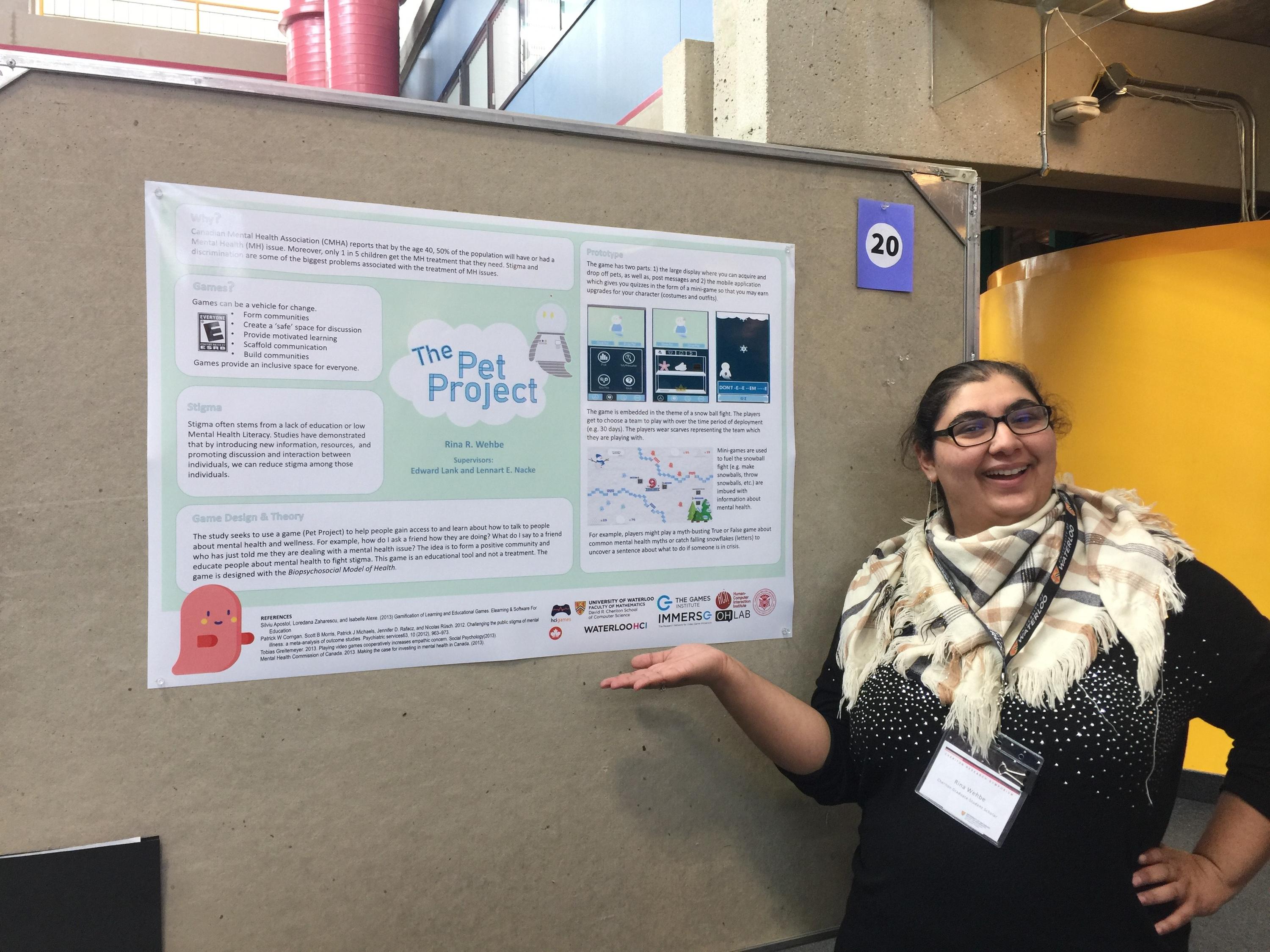Rina R. Wehbe, Ph.D. Candidate in Computer Science, presented at the Poster Session at the Cheriton Computer Science Research Symposium. This annual event, held in the Davis Centre, features work of those who have received the merit-based Cheriton School of Science Scholarship.
Wehbe's most recent work was presented at the poster symposium, which was attended by many experts in computer science including David R. Cheriton himself.

Wehbe's work is expansive with recent work presented on affective interactions with Non-player Characters (NPCs) Teammates (NPCTs), game-difficulty balance and calibration, as well as, tuning the in-game movement of artificial intelligence to optimize gaming experience.
Wehbe was also part of a project on item collectables as part of a collaboration between the GI's very own HCI Games Group and the Pixl Lab of NMSU
Wehbe's poster session focused on "The Pet Project" which is a game designed to teach people about mental health issues with the goal of reducing stigma through education. The goal is to help prepare the everyday person to discuss situations regarding mental health and wellness; for example, ‘how should one respond to a friend who reveals they are in a crisis?’
The Pet Project works as an educational tool designed with the Biopsychosocial Model of Health which focuses on the interconnection of biology, psychology and socio-environmental factors. For more information about the project please see Wehbe's personal website.
This project is a continuation of Wehbe's previous work Above Water being conducted in collaboration with the CMU HCII OH Lab lead by Dr. Jessica Hammer.
Speakers such as Dan Brown and Urs Hengarther of the David R. Cheriton School of Computer Science also spoke at this year's symposium and discussed the possibility of computers being able to create art the same way that humans do and the risk behind software security such as PIN numbers or passwords as well as the future of this security.
For more information on the Symposium see here